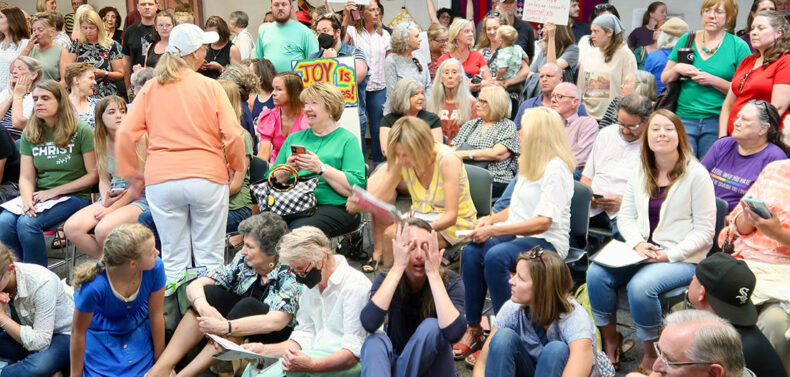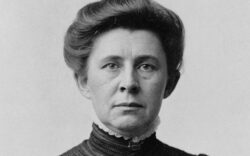“Marian, madame librarian… Heaven help us if the library caught on fire.” So sang Robert Preston in The Music Man, the 1962 movie about a smooth-talking grifter trying to bilk the citizens of a small Iowa town. Today, libraries and librarians face troubles as campaigns are waged across America against books that might contain controversial content.
Near Athens in 1994, one parent complained about the profanity “God damn” uttered by a crusty character in The Red Pony, the classic novel by Nobel Prize-winning writer John Steinbeck that was included in Oconee County school libraries. The ensuing book-banning battle attracted state and national attention, but Steinbeck’s novel remained available in the county. Flash forward nearly 30 years, to 2023, and Oconee County was again the scene of challenges to libraries from self-anointed censors in high dudgeon over books in the local library that mentioned LGBTQ relationships.
Those parents who would circumscribe the reading rights of all in favor of the ideology of a few are people who would prevent your children from reading a book just because they don’t want their own children to read it. They should read the wise words of playwright and diplomat Clare Boothe Luce: “Censorship, like charity, should begin at home; but, unlike charity, it should end there.”
Writer Ray Bradbury was correct when he said, “Without libraries, what have we? We have no past and no future.” Bradbury’s love of books and libraries was a source for perhaps his most famous novel, Fahrenheit 451, a dystopian tale of a totalitarian society that burns books, as did Hitler’s Nazi regime in Germany. As a young and struggling writer, Bradbury wrote his book on a coin-operated typewriter in a university library. American printer and patriot Benjamin Franklin spearheaded the creation of public libraries in America nearly 300 years ago, and ever since then libraries have provided information and inspiration for writers like Bradbury and for all this nation’s citizens.
Libraries are under attack today as a torrent of anti-intellectualism, extremism and divisiveness threatens to drown the American body politic in a flood of fear, repression and regression. Past U.S. presidents knew the role of the library in stemming the tide of ignorance and intolerance. Thomas Jefferson said, “A democratic society depends upon an informed and educated citizenry.” As fascism was on the march and book burnings raged in Germany, Franklin Roosevelt reminded his fellow Americans that, “Libraries are great symbols of the freedom of the mind… The library is central to our free society. It is a critical element in the free exchange of information at the heart of our democracy.” President Dwight D. Eisenhower said that libraries should be places where “free and inquiring minds” can “freely seek the whole truth, unvarnished by fashion and uncompromised by expediency.”
When I was a young person in the small town Jim Crow South of the 1950s and ‘60s, the town library was a place for the “free and inquiring minds” of people of every age and race. Though strict segregation ruled the rest of the town, the local librarian opened her doors to citizens of any color, and books with titles like Facts of Life for Boys and Facts of Life for Girls were accessible on the library’s bookshelves. That librarian was a quiet hero like the fictional librarian in “The Obsolete Man,” a 1961 episode of “The Twilight Zone” TV series written by Rod Serling. In the episode, actor Burgess Meredith portrays a librarian who stands up to an authoritarian state in which “logic is an enemy and truth is a menace.”
Support your local library and support your local librarians. The Athens-Clarke County Library on Baxter Street offers thousands of books, and it was one of the first libraries in Georgia to provide internet access for its patrons. It is the site of public meetings and book signings, and is an invaluable resource for genealogy researchers and history buffs.
In these times of overflowing online misinformation, libraries and librarians are more important than ever. They prove what writer Neil Gaiman meant when he said, “Google can bring you back 100,000 answers. A librarian can bring you back the right one.”
Like what you just read? Support Flagpole by making a donation today. Every dollar you give helps fund our ongoing mission to provide Athens with quality, independent journalism.










